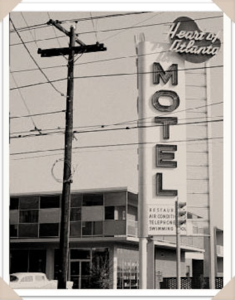
*On this date in 1964, Heart of Atlanta Motel, Inc. v. the United States was decided. This court case was a landmark decision of the United States Supreme Court.
It held that the Commerce Clause gave the U.S. Congress power to force private businesses to abide by Title II of the Civil Rights Act of 1964, which prohibits discrimination based on race, religion, or national origin in public accommodations. The ruling represented the first comprehensive act by Congress on civil rights and race relations since the Civil Rights Act of 1875. For the past 100 years preceding 1964, blacks in the United States had been dominated by racial segregation, a system of racial separation which, while in name providing for "separate but equal" treatment of both whites and blacks, indeed provided inferior accommodation, services, and treatment for blacks.
During the mid-20th century, partly as a result of cases such as Powell v. Alabama, 287 U.S. 45 (1932); Smith v. Allwright, 321 U.S. 649 (1944); Shelley v. Kraemer, 334 U.S. 1 (1948); Sweatt v. Painter, 339 U.S. 629 (1950); McLaurin v. Oklahoma State Regents, 339 U.S. 637 (1950); NAACP v. Alabama, 357 U.S. 449 (1958); Boynton v. Virginia, 364 U.S. 454 (1960); and Brown v. Board of Education of Topeka, 347 U.S. 483 (1954), public opinion began to turn against Jim Crow segregation. Despite the outcomes of these cases, segregation remained in full effect into the 1960s in parts of the southern United States, where the Heart of Atlanta Motel was located.
Argued on October 5, 1964, Heart of Atlanta Motel, Inc. v. the United States has been cited in at least 690 other case decisions since its ruling, including multiple other Supreme Court cases. A notable example is the 1997 case Camps Newfound/Owatonna, Inc. v. Town of Harrison, in which a summer camp in Maine mainly serviced out-of-state residents fought against a state tax exemption statute that favored organizations that serviced state residents.
The courts compared out-of-state campers staying at a summer camp to out-of-state residents occupying a hotel, deeming the camp a participant in interstate commerce. Another example is the 1966 case, United States v. Guest, in which the courts ruled that the conspiratorial murder of Lt. Col. Lemuel Penn while he was traveling home, forcefully depriving someone's right to travel, is unconstitutional.